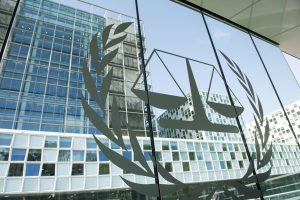This week, the head prosecutor of the International Criminal Court (ICC) announced that her office has “reasonable basis to believe” crimes against humanity have been committed in the Philippines’ recent blood-stained anti-drugs campaign.
In a report released on December 15, ICC Prosecutor Fatou Bensouda said that her office was “satisfied” that various crimes of humanity – from murder and torture to the infliction of serious physical injury and mental harm – had been “committed on the territory of the Philippines between at least 1 July 2016 and 16 March 2019, in connection to the War on Drugs campaign launched throughout the country.”
The vicious anti-drug campaign began shortly after President Rodrigo Duterte came to office in 2016, a carbon copy of the uncompromising law-and-order model that he had employed as mayor of Davao City in the Philippines’ south. The full death toll of Duterte’s “war on drugs” is unclear, though independent estimates put the number at anywhere from 12,000 to more than 20,000.
Bensouda said that she has not yet decided whether to initiate a formal investigation into the Philippine drug war, citing restrictions imposed by the ongoing COVID-19 pandemic. “The Office anticipates reaching a decision on whether to seek authorization to open an investigation into the situation in the Philippines in the first half of 2021,” she wrote.
Another crucial question is whether or not the Philippine justice system is willing or able to prosecute these crimes on its own accord. So far, Bensouda said in her report, there had been a “limited number of investigations and prosecutions” of those responsible for drug war killings.
In an investigation of the drug war published in January 2019, the news outlet Rappler found that the authorities had decided not to criminally investigate the deaths of 5,050 people killed in police operations, citing “presumption of regularity.” Of the 20,000 or more overall deaths that resulted from the war on drugs, Rappler found that the Justice Department had until that point pursued just 76 cases.
Since then, the government has taken some halting steps. In June of this year, Justice Secretary Menardo Guevarra announced the creation of an inter-agency panel to reinvestigate the more than 5,000 people killed by policemen in “legitimate” anti-drug operations. But the panel, which was set up explicitly to counter “calls for an independent investigative mechanism” (such as by the ICC), missed its November deadline for the submission of its initial report. In her statement, Bensouda said that she would “continue to closely monitor” the activities of the drug war review panel.
If the ICC opts to open an investigation, it is unlikely to get any cooperation from the Duterte administration. When the Hague-based court announced its intention to probe the Philippine leader’s war on drugs, Duterte withdrew the Philippines from the Rome Statute that established the court, a decision that took effect in March 2019. However, the ICC has the right to investigate any alleged crimes that took place prior to that date.
Presidential spokesperson Harry Roque said on December 15 that the government was confident that the ICC prosecutors would decide against opening a preliminary investigation into his controversial drug war. “We are confident because we already said that we don’t recognize ICC jurisdiction,” Roque said in a press briefing. “ICC will apply its ruling in a previous case wherein they won’t open a case if the country will not cooperate.”
The previous case mentioned by Roque was an April 2019 ruling in which pretrial judges blocked a proposed investigation of the United States for war crimes perpetrated in Afghanistan since 2003. (The ICC later reversed the decision.)
At this stage, the outcome of the ICC probe remains unclear. Much hinges on the outcome of the presidential election in 2022, when Duterte’s single six-year term comes to an end. Should one of Duterte’s allies win the election, the chances of accountability would be slim, whether in domestic or international courts.
If one of Duterte’s opponents should win, however, that might create political will for the investigation of crimes. But would any future Philippine president interested in accountability for the drug war also fail to prosecute it in local courts? There is also the question of how the public would react given that Duterte’s drug war has generally been hugely popular. As it stands, it would seemingly require an extraordinary pattern of events for Duterte to end up in a holding pen at The Hague.
The ICC’s drug war case once again demonstrates the difficulty that the court’s legal mechanisms face in overcoming barriers of national sovereignty. As so often with international criminal law, legal accountability only proceeds when the political way is clear.
































